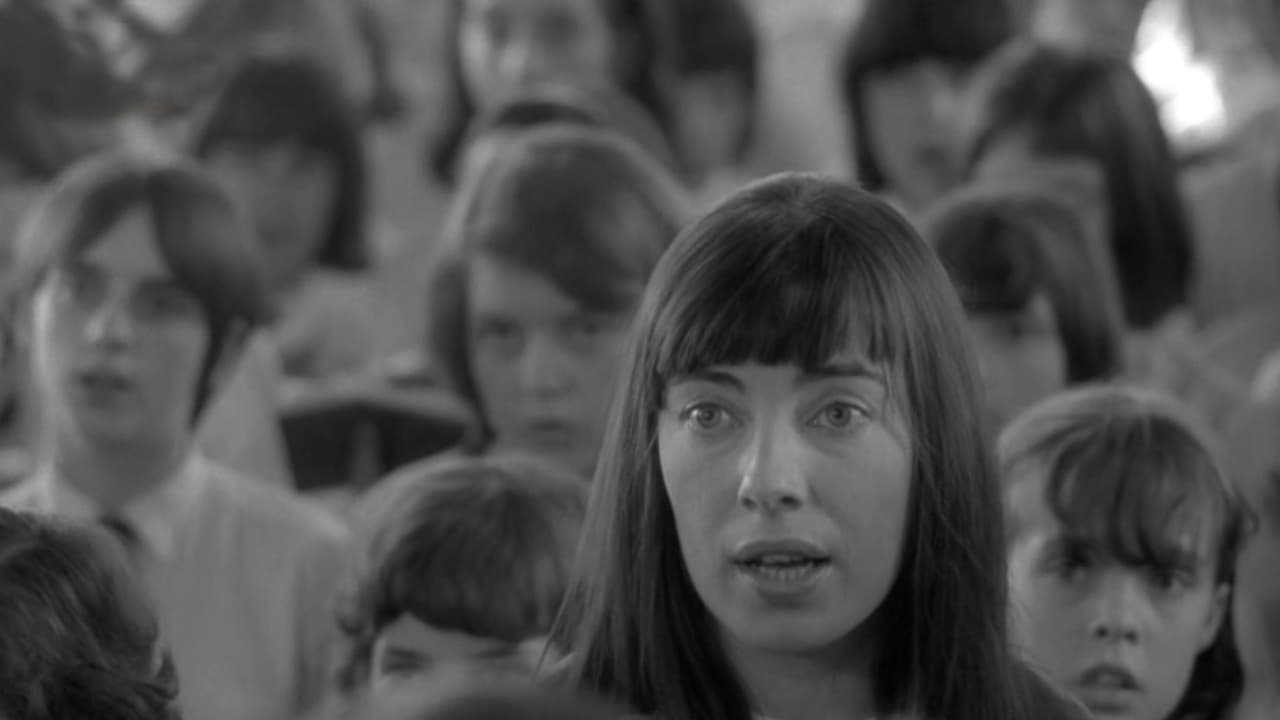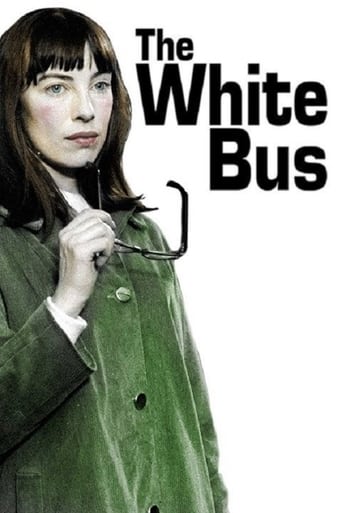



A Masterpiece!
It really made me laugh, but for some moments I was tearing up because I could relate so much.
View MoreUnshakable, witty and deeply felt, the film will be paying emotional dividends for a long, long time.
View MoreThrough painfully honest and emotional moments, the movie becomes irresistibly relatable
View MoreCute, whacky and beautifully shot surrealistic short from Lindsay Anderson which clearly foreshadows if.... which followed a year later (plus O Lucky Man and Brittania Hospital too). The same cinematographer as on if.... plus the mix of black and white and colour shots. Some key music sound cues from if... feature here for the first time plus the reading of the proverbs quote "wisdom is the principal thing..." which opens if....There's also a bit of M Hulot's theme from Mon Oncle mixed in there plus some classic Tati-esque visual humor. I guess Mr Anderson had a whole lot of stuff already brewing that would come flowing out in force a little later.Criterion definitely missed a trick not including this on the if.... DVD/Bluray - a little more relevant than the Oscar winning short about the deaf kids I'd say. All in all a charming, strange and chuckly way to spend forty minutes.
View MoreA strange, moody, yet captivating film that captures the atmosphere at a certain time in Britain. I love the images of the terrace houses, the back alleyways and bombed out areas. I grew up just off Holderness Road in Hull and the images gave me a flashback to that time. The air is heavy with coal smoke, the roads have few cars and kids are playing in the streets, whilst the people all look gray like in a Lowry painting. The silent parts are the best as the images speak for themselves.The humour is nicely understated. My particular favorite is the scene with the lift and the security guard.I not sure what messages the film is seeking to convey, but as an observation piece it is superb.
View MoreAn early film, originally meant to be part of a three part set of adaptations of stories by Shelagh Delaney, which was never finished, which has many of the techniques that Anderson later used in If and O lucky Man. A girl finishes work in an open-plan office of the type there used to be, walks past the hanging body of another girl (or perhaps her own body- the film could be an after-death fantasy) takes a train to a Northern town, latches onto a civic tour led by the mayor and has a bag of chips in a café. That's the story. What goes with it is Anderson's strange way of looking at what may be reality- when the girl is going to catch the train a young upper-class man makes a long speech at her, both declaring his love and arguing for class distinctions. All the girl says is "Goodbye". Again, there is no way of telling if the man is a fantasy of the girl's or- if he is "real" in the film's context- whether he is connected with the girl in any way. In the Northern town the girl gets on/is roped into a tour led by the mayor. The mayor- played by Arthur Lowe, one of Anderson's regular actors- is both absurd and dignified, presented dead-pan the mace bearer is a sinister character, making gnomic remarks, a messenger of death, perhaps; the passengers include Africans and Indians and they look round the town- an industrialist's estate left to the town where he made his wealth, a girls' school, a museum, a library... In the end the girl wanders off and sits in a chippie with a bag of chips as the owners clean up around her- a perfect cinematic koan, no longer than it need be.Afterword, two years later:I forgot some important aspects in my last review, or I saw a different version today: the girl says "I'll write", not "Goodbye" to the upper-class young man and i'd forgotten how deliberately the film slides in and out of different kinds of reality and how much it uses parody and cliché- the mayor's obsession with "mucky books" in the library, the painting of Jesus with a flock of wolves in the art gallery, the tableau of Le Dejeuner sur l'Herbe in the park, the industrial estate depicted as a meaningless mechanical hell with the visitors walking immune through its perils, the realistic scene of Civil Defence practise which ends with the whole party turned into literal dummies except the girl. Above all, though, I forgot the film's opening: a different girl on a tour boat going downriver through London, past Parliament, photographed with ritualistic care, past the Shell Building, through the City where the girl in the film works, which makes the whole main action even more distanced and derealised.
View MoreThis film had a big impact on me. Saw first saw it on BBC2 in the 70's as part of a Anderson Retro. Originally based on Delaney's book Red, White & Zero it was a three director/stories feature film. Although the other two parts were never finished. That's why the film doesn't have titles.The reason why I loved this film was because I grew up in a slum clearance area of Liverpool. The film's landscape was exactly the same. Everything demolished - except for the pubs. I'd never seen anything like it on TV before.I recently got another chance to see it and loved it. The story follows a girl who is fed up with working in London. The shot opens with her at a desk while the legs of a hanged fellow worker dangle from the celling. She leaves London - tired and fed up - and goes home to Manchester (although parts of the film were filmed in Birmigham). She stands at a desolate bus stop in the middle of demolished terraces. When along comes the white bus - it's a tour guided ride which shows the best of the city. What makes it even more special is that the bus is on it's maiden voyage. The Lord Mayor (Arthur Lowe) and other dignitaries ride the bus on a tour of factories, libraries and even a civil defence demo. At the end of the tour the girl winds up in a small cafe watching, inside what look like married couple. Thier love and passion for the small things in life mesmerises and charms the girl - reminding her what life's all about.For Delaney it's like Charlie Bubbles - dealing with leaving your home town and looking at the effect it has on you. For Anderson it's yet another example of his cinematic poetry - like If... and Sporting Life. This film is a very special film by very special people. Oh thank you for making it.
View More